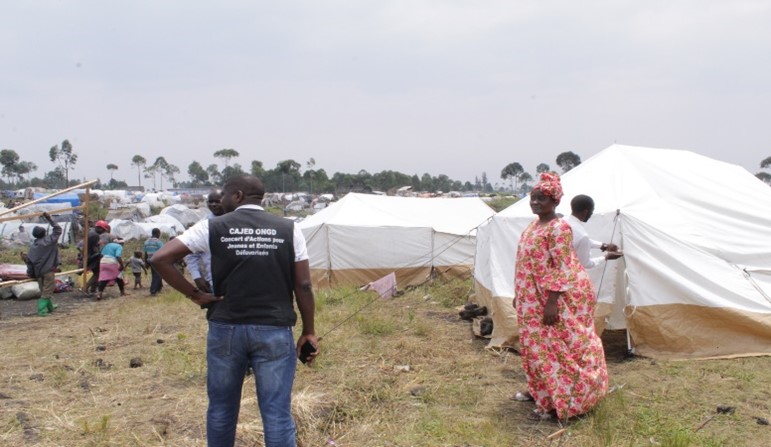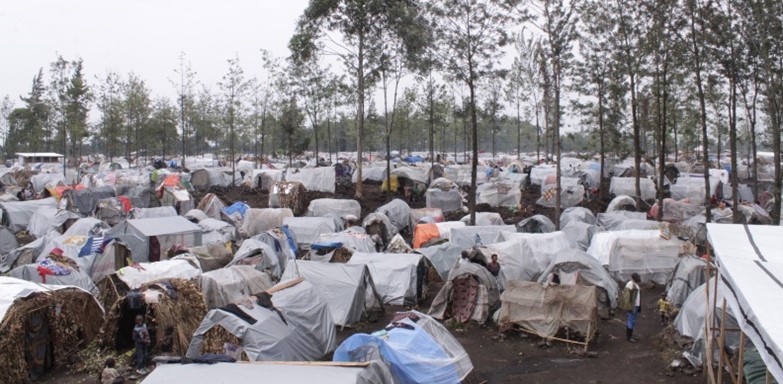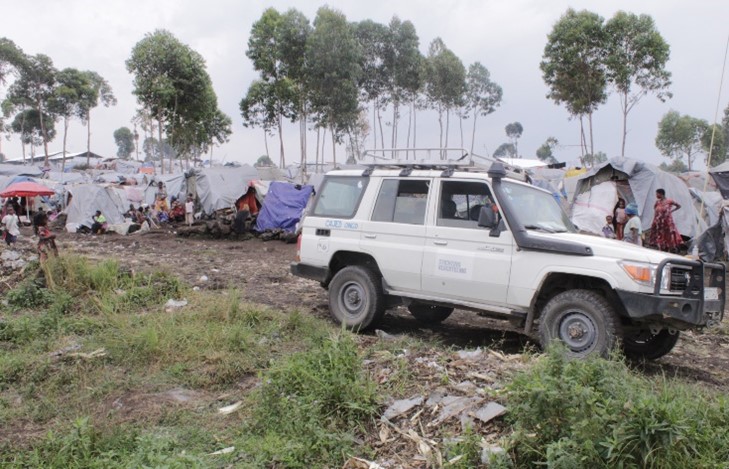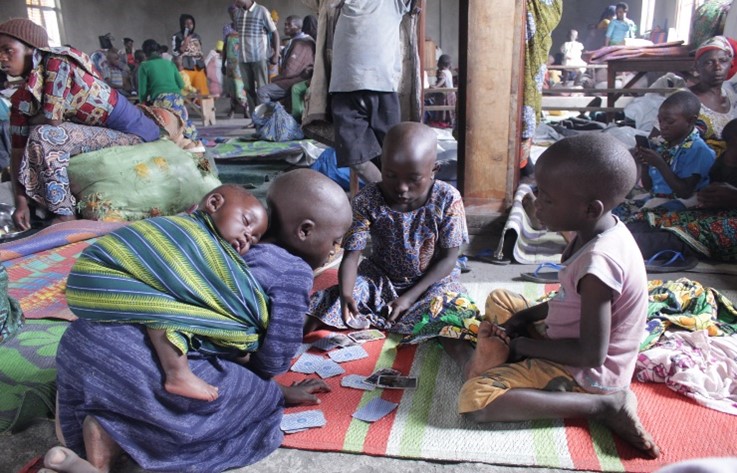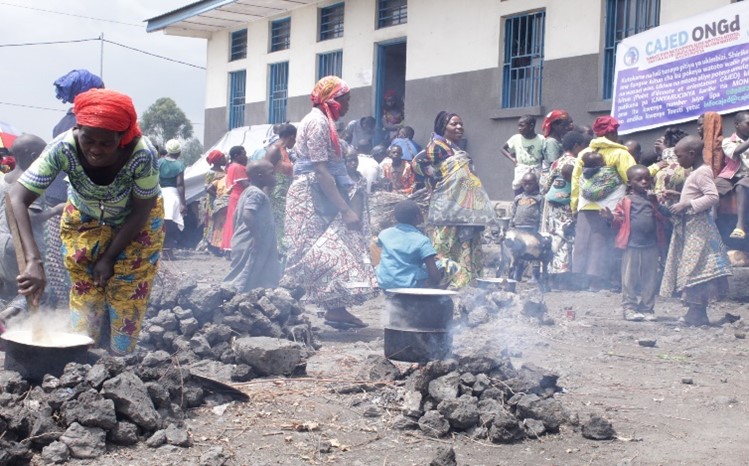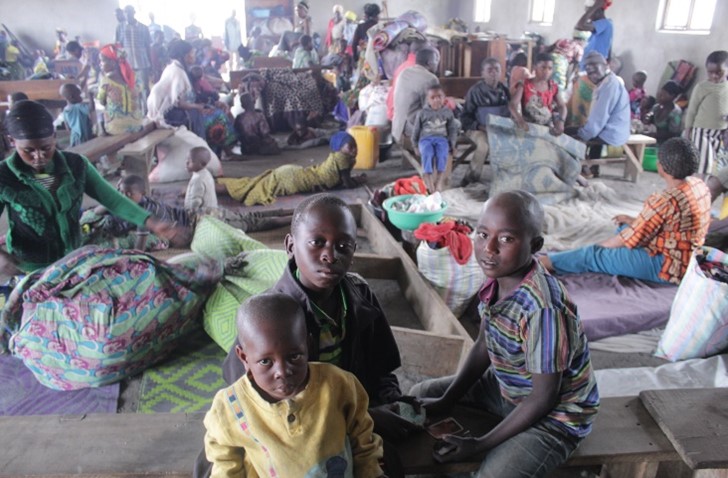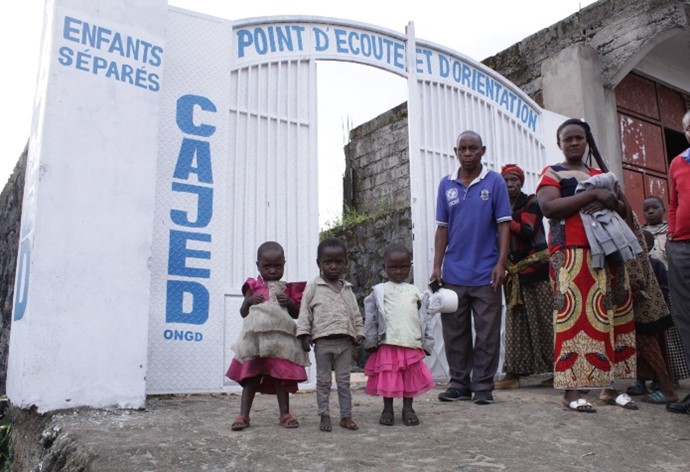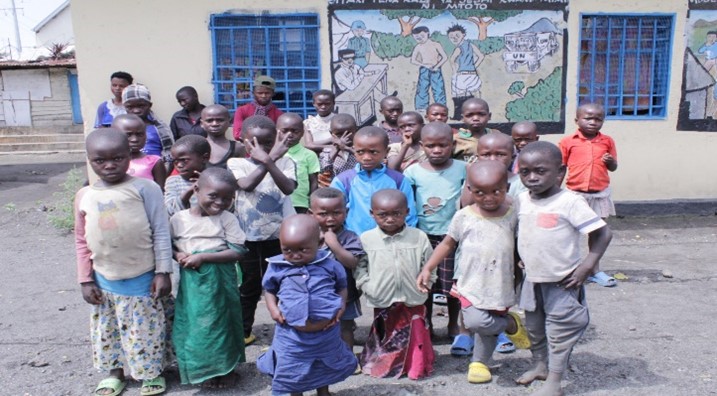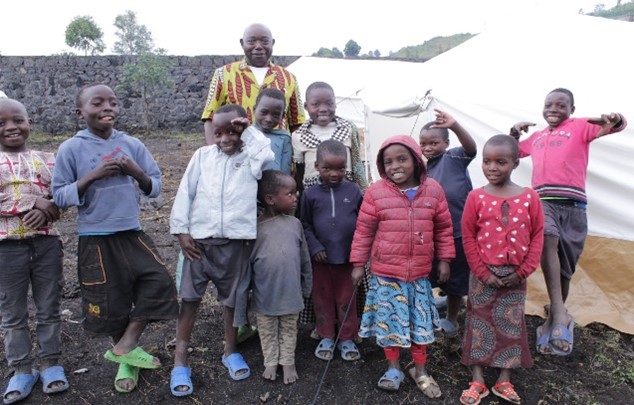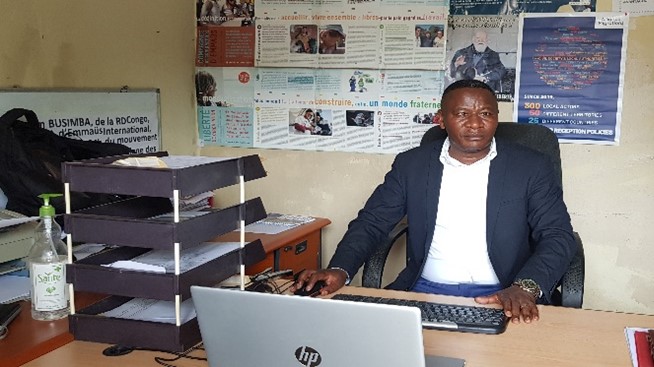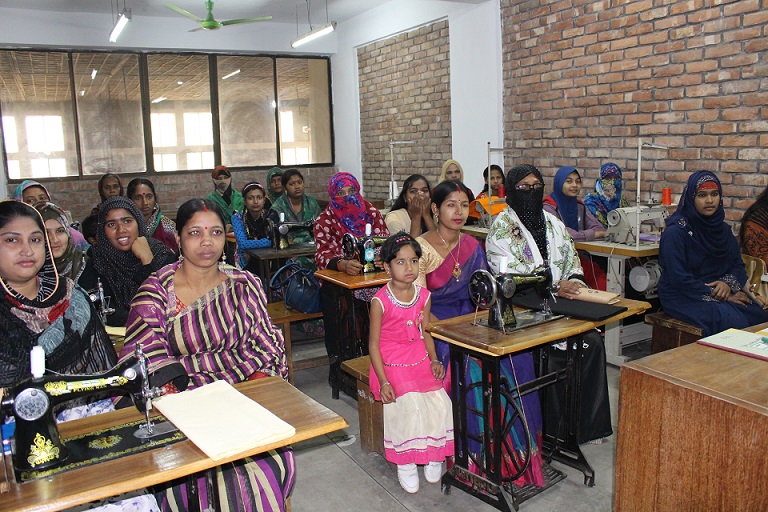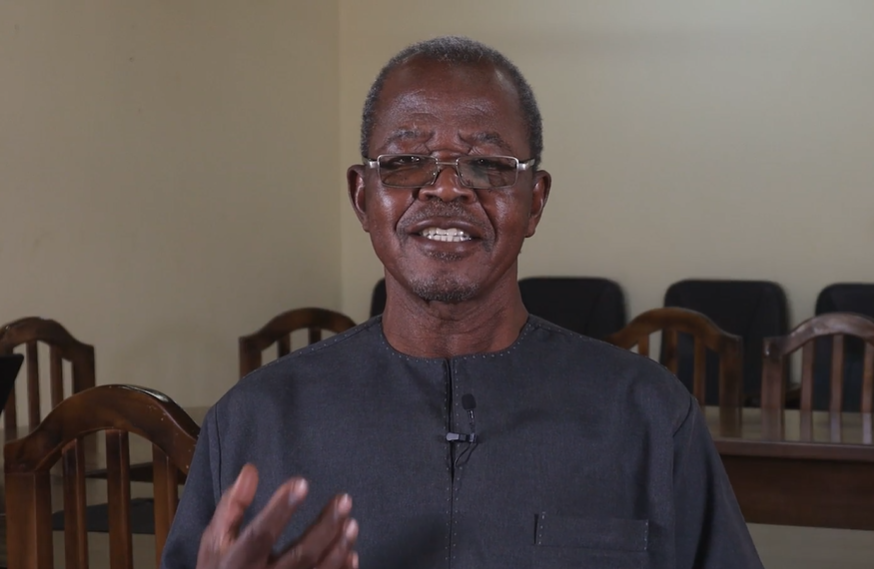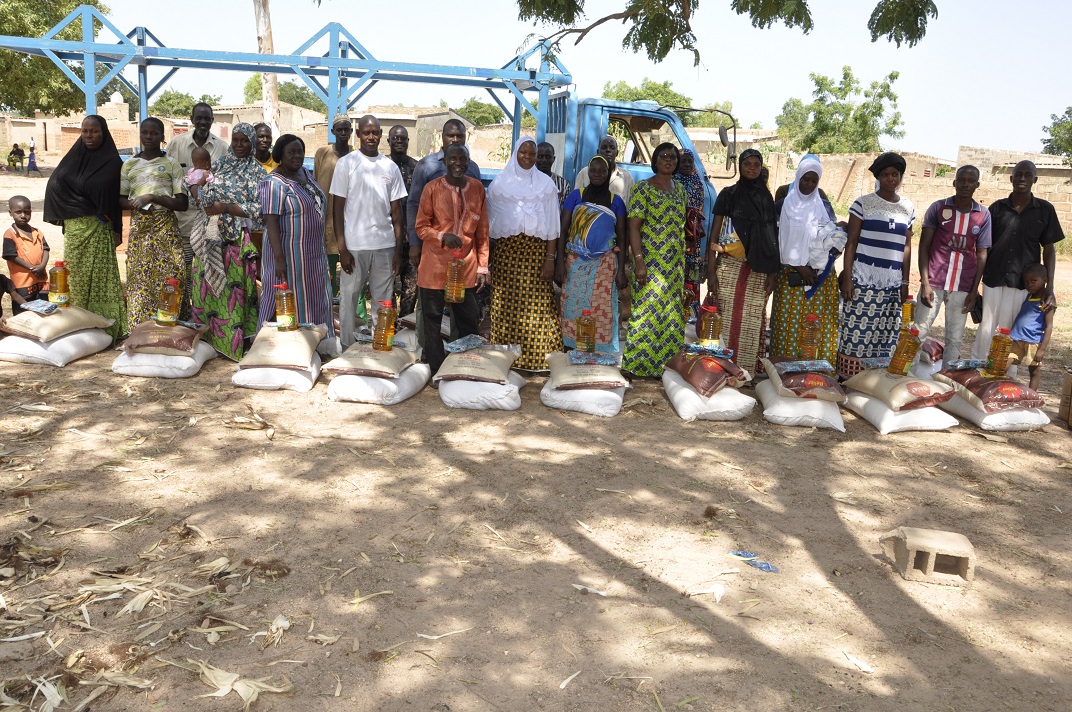DRC: “The city of Goma is suffocating right now”
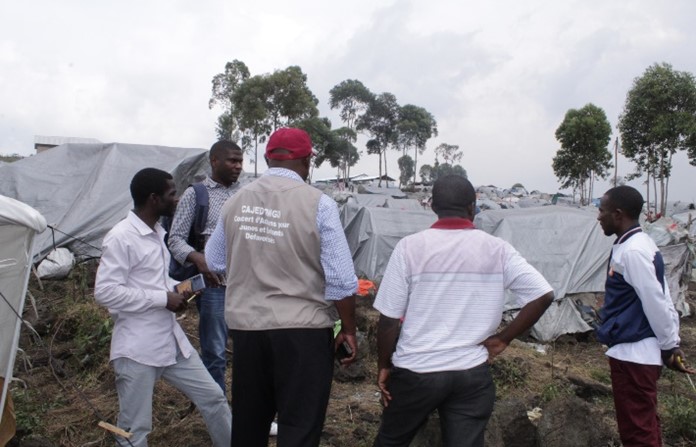
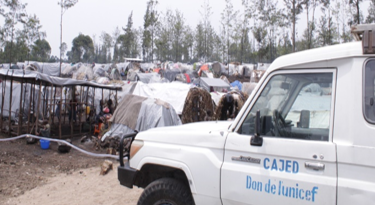
In North Kivu, in the east of the Democratic Republic of Congo (DRC), the situation is deteriorating day by day, due to attacks by the M23* rebels. In this context, the Emmaus CAJED group, which works with disadvantaged children and young people, has been helping thousands of displaced people living in makeshift camps in the city of Goma, which is almost entirely cut off from the rest of the country.
Interview with Faustin Busimba, Programme Manager at Emmaus CAJED:
Emmaus International: What do you think started this crisis in North Kivu?
Faustin Busimba: The new crisis in the east of the DRC in the North Kivu Province is the result of attacks by M23 rebels. Supported by Rwanda [according to a recent report by the UN, editor’s note], these attacks began in March 2022 in the Rutshuru territory, then they eased off in June 2022 to give way to the political process. The leaders of the East African Community (EAC) then joined forces to initiate a peace process. Unfortunately, this political process, which included the disarmament of armed groups and the implementation of institutional reforms, did not bear fruit. The deployment of EAC forces in North Kivu province appears to be ineffective, and may even be counterproductive, in combating the M23 rebels.
After a temporary lull of almost three months, fighting resumed on 20 October 2022 and has affected several locations in the territories of Rutshuru, Binza and Rwanguba, cutting off the national road connecting the city of Goma and the Rutshuru territory. With the rapid advance of the rebels, several areas have fallen under their control. The fighting has sparked a massive influx of displaced people into the city of Goma and to relatively safe areas in the Nyiragongo and Masisi territories.
In pictures
What is the current situation like in Goma, and more generally in North Kivu?
Since the start of the crisis, the city of Goma has received and continues to receive IDPs in host families, and thousands more are settling in designated sites around Goma. The situation is very tense, as the city is currently cut off from all supply routes. Clashes are taking place some 30 kilometres from the city and residents are living in a state of fear, terrified that the rebels could take over the city at any moment.
The scarcity of basic goods is increasingly apparent, making the cost of living very expensive. In North Kivu, there are ongoing civil society demonstrations and citizens’ movements are organising against the presence of the armed forces and the risk of breakup of the territory. However, crack downs on these protests often lead to arrests, loss of life and damage to property, etc.
What are the conditions like for the thousands of people fleeing the fighting?
IDPs reach the sites and the town of Goma in extremely harrowing conditions, and most have been separated from their families. The welcome offered leaves a lot to be desired. Due to the inadequate emergency response, displaced people are being dispersed to informal settlements, lacking food or health care. Overcrowding in these facilities increases the risk of sexual exploitation and abuse, as well as gender-based violence.
Humanitarian workers are currently overwhelmed by the large number of displaced people, which is growing daily, with numbers exceeding all expectations.
In pictures
What are the consequences for Emmaus CAJED and the people that the group works with on a daily basis?
First of all, this crisis has had a major impact on CAJED’s activities by limiting access to the areas in which we operate, particularly Masisi and Rutshuru, which are currently occupied by the M23 rebels. Several programmes, such as the Identification, Tracing and Reunification (IDTR) programme for unaccompanied and children separated from their families and the Disarmament, Demobilisation and Reintegration (DDR) programme for children involved with armed groups, covered several locations that are now under rebel control. These programmes are on hold until peace is restored. Currently, our activities are limited to the city of Goma and the surrounding IDP sites. This is compounded by the high cost of living that affects the members of the CAJED group, each of whom has opened their home to more than one displaced family.
Moreover, this crisis has exacerbated the insecurity that these populations were already struggling with. IDPs, and women and children in particular, are temporarily deprived of their basic rights, unable to access basic social services such as education, health care, housing, or obtain food and clothing. This situation leads some to steal or be exploited for their survival, particularly through sexual exploitation, with all the risks that this entails.
What can you do on the ground? In what ways are you providing assistance to displaced persons?
The Emmaus CAJED group has always been involved in child protection in the DRC and is currently a UNICEF field partner in the province.
During the current crisis, our work is intensifying in the areas in which we usually work: we are continuing our work of identifying and reuniting children and families separated in the course of displacement. We have strengthened our usual systems, notably the listening services in the different areas in order to document and pool the information gathered. Children are placed in temporary foster families while they await reunification with their families.
With regard to the children who have already left armed groups, Emmaus CAJED is continuing its usual activities in the Disarmament, Demobilisation and Reintegration programme in collaboration with other partner structures, such as MONUSCO/Child Protection Section, and the Disarmament, Demobilisation and Community Reintegration programme.
Our focus is on political advocacy by strengthening awareness-raising and advocacy activities through various communication channels to prevent child recruitment.
In pictures
What is the outlook for the people in the region? How do you picture the next few months?
The people in the region are longing for peace and to regain their dignity through access to basic rights. Without this they are bound to fall into poverty. Achieving this requires a mammoth effort to raise awareness at local, national and international levels. The political will for change must be there!
The coming months look bleak, as we see that the interests of the major powers and multinationals still take precedence over human life. Contracts and trade agreements between nations, often poorly negotiated and not widely known among the people, are weighing heavily on the current situation and the country. There is a lot of work to be done for the socio-economic recovery of the region in general, and the DRC in particular.
What are the needs of your Emmaus group on the ground?
The main needs identified by Emmaus CAJED during this crisis are essentially to boost its operations and provide financial support to meet the vital needs and multiple demands of internally displaced people, such as food, clothing, health care, hygiene products, education, etc.
*M23 is essentially composed of former soldiers of the Congolese army who rebelled because they accuse the government of marginalising the Tutsi ethnic minority.
